
George Raymond Richard Martin also known by the initials G.R.R.M. is an American author, television writer, and television producer. He is best known as the author of the series of epic fantasy novels A Song of Ice and Fire, which were adapted into the Primetime Emmy Award–winning television series Game of Thrones (2011–2019) and its prequel series House of the Dragon (2022–present). He also helped create the Wild Cards anthology series and contributed worldbuilding for the video game Elden Ring (2022).

Sir Terence David John Pratchett was an English author, humorist, and satirist, best known for the Discworld series of 41 comic fantasy novels published between 1983 and 2015, and for the apocalyptic comedy novel Good Omens (1990), which he co-wrote with Neil Gaiman.

Charles Sheffield, was an English-born mathematician, physicist and science-fiction writer who served as a President of the Science Fiction and Fantasy Writers of America and of the American Astronautical Society.

Ian Russell McEwan is a British novelist and screenwriter. In 2008, The Times featured him on its list of "The 50 greatest British writers since 1945" and The Daily Telegraph ranked him number 19 in its list of the "100 most powerful people in British culture".

Roderick Doyle is an Irish novelist, dramatist and screenwriter. He is the author of eleven novels for adults, eight books for children, seven plays and screenplays, and dozens of short stories. Several of his books have been made into films, beginning with The Commitments in 1991. Doyle's work is set primarily in Ireland, especially working-class Dublin, and is notable for its heavy use of dialogue written in slang and Irish English dialect. Doyle was awarded the Booker Prize in 1993 for his novel Paddy Clarke Ha Ha Ha.

Saturday (2005) is a novel by Ian McEwan. It is set in Fitzrovia, central London, on Saturday, 15 February 2003, as a large demonstration is taking place against the United States' 2003 invasion of Iraq. The protagonist, Henry Perowne, a 48-year-old neurosurgeon, has planned a series of errands and pleasures, culminating in a family dinner in the evening. As he goes about his day, he ponders the meaning of the protest and the problems that inspired it; however, the day is disrupted by an encounter with a violent, troubled man.
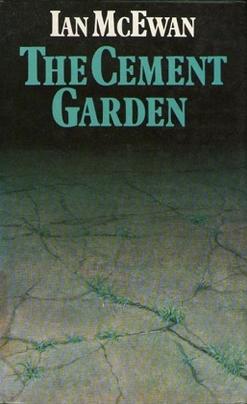
The Cement Garden is a 1978 novel by Ian McEwan. It was adapted into a 1993 film of the same name by Andrew Birkin, starring Charlotte Gainsbourg and Andrew Robertson. The Cement Garden has had a positive reception since its original publication.
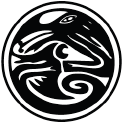
The Aurealis Award for Excellence in Speculative Fiction is an annual literary award for Australian science fiction, fantasy and horror fiction. Only Australians are eligible for the award.
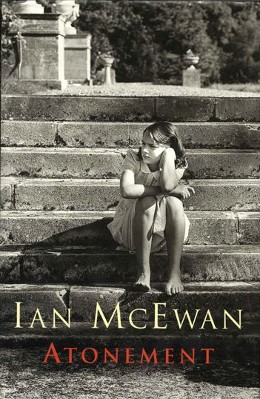
Atonement is a 2001 British metafictional novel written by Ian McEwan. Set in three time periods, 1935 England, Second World War England and France, and present-day England, it covers an upper-class girl's half-innocent mistake that ruins lives, her adulthood in the shadow of that mistake, and a reflection on the nature of writing.

Frank Cottrell-Boyce is a British screenwriter, novelist and occasional actor, known for his children's fiction and for his collaborations with film director Michael Winterbottom. He has achieved fame as the writer for the 2012 Summer Olympics opening ceremony and for sequels to Chitty Chitty Bang Bang: The Magical Car, a children's classic by Ian Fleming.

Holly Black is an American writer and editor best known for her children's and young adult fiction. Her most recent work is the New York Times bestselling young adult Folk of the Air series. She is also well known for The Spiderwick Chronicles, a series of children's fantasy books she created with writer and illustrator Tony DiTerlizzi, and her debut trilogy of young adult novels officially called the Modern Faerie Tales. Black has won a Nebula Award and a Newbery Honor.

The Child in Time (1987) is a novel by Ian McEwan. The story concerns Stephen, an author of children's books, and his wife, two years after the kidnapping of their three-year-old daughter Kate.
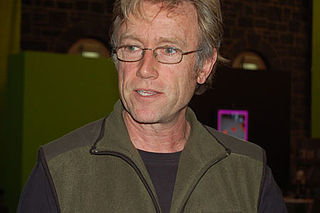
Paul Collins is an Australian writer and editor who specializes in science fiction and fantasy.

The Comfort of Strangers is a 1981 novel by British writer Ian McEwan. It is his second novel, and is set in an unnamed city. Harold Pinter adapted it as a screenplay for a film directed by Paul Schrader in 1990, which starred Rupert Everett, Christopher Walken, Helen Mirren and Natasha Richardson. The film is set in Venice.
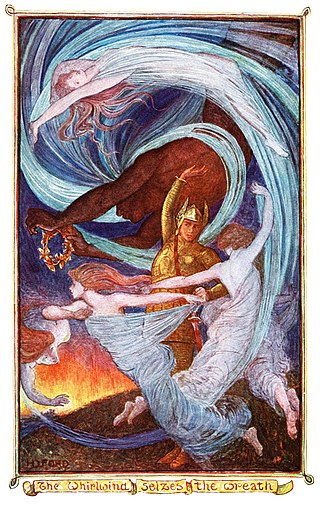
Fantasy is a genre of speculative fiction which involves themes of the supernatural, magic, and imaginary worlds and creatures.

Ewan Morrison is a Scottish author, cultural critic, director, and screenwriter. He has published eight novels and a collection of short stories, as of 2021. His novel Nina X won the Saltire Society Literary Award for Fiction Book of the Year 2019. Literary critic Stuart Kelly described Morrison as "the most fluent and intelligent writer of his generation here in Scotland".

Sweet Tooth is a novel by the English writer Ian McEwan, published on 21 August 2012. It deals with the experiences of its protagonist, Serena Frome, during the early 1970s. After graduating from Cambridge she is recruited by MI5, and becomes involved in a covert programme to combat communism by infiltrating the intellectual world. When she becomes romantically involved with her mark, complications ensue.

Daryl Gregory is an American science fiction, fantasy and comic book author. Gregory is a 1988 alumnus of the Michigan State University Clarion science fiction workshop, and won the 2009 Crawford Award for his novel Pandemonium.

Charles Blackstone is an American writer. His most recent novel is the semi-autobiographical Vintage Attraction (2013).
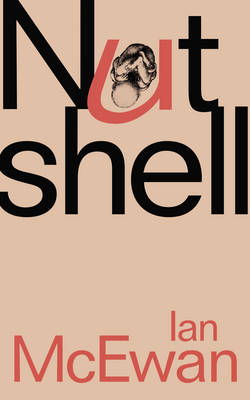
Nutshell is the 14th novel by English author and screenwriter Ian McEwan published in 2016. It alludes to William Shakespeare’s Hamlet and re-imagines the plot from the perspective of an eight-month-old unborn foetus in London in 2015.




















